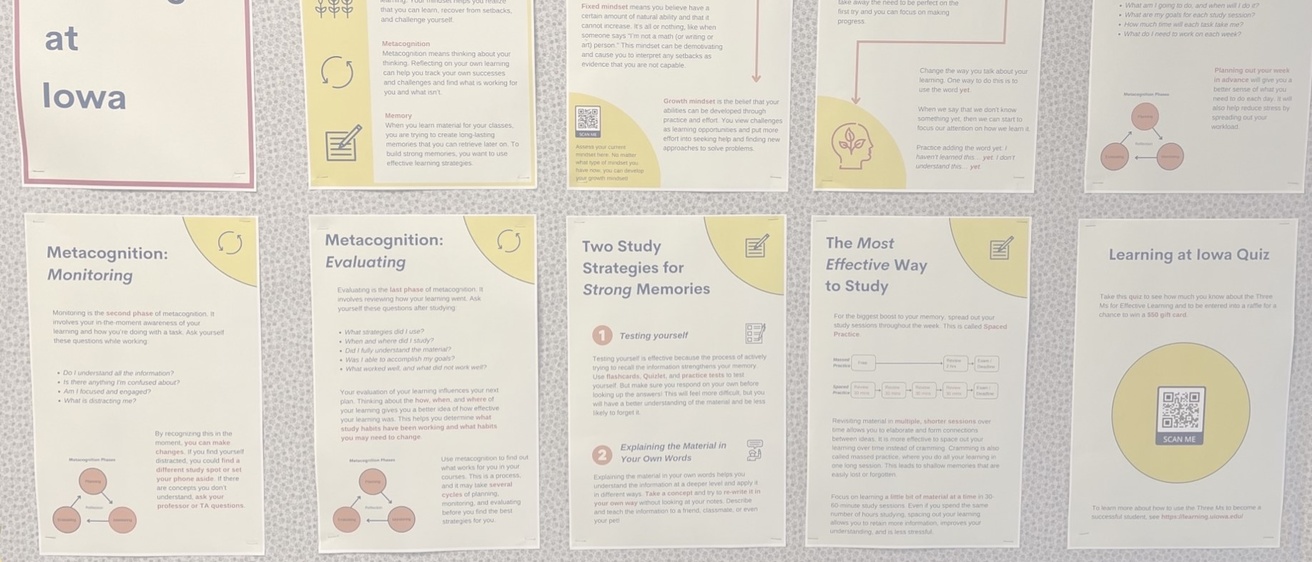Learning at Iowa collaborates with over 50 academic departments and administrative offices to share the Three Ms with students and promote academic success.
Faculty and staff members in every undergraduate college are adapting the framework to their unique needs and promoting effective learning strategies through academic courses, advising and coaching, and peer-led support services such as tutoring and mentoring.
Collaborating Partners - Highlights
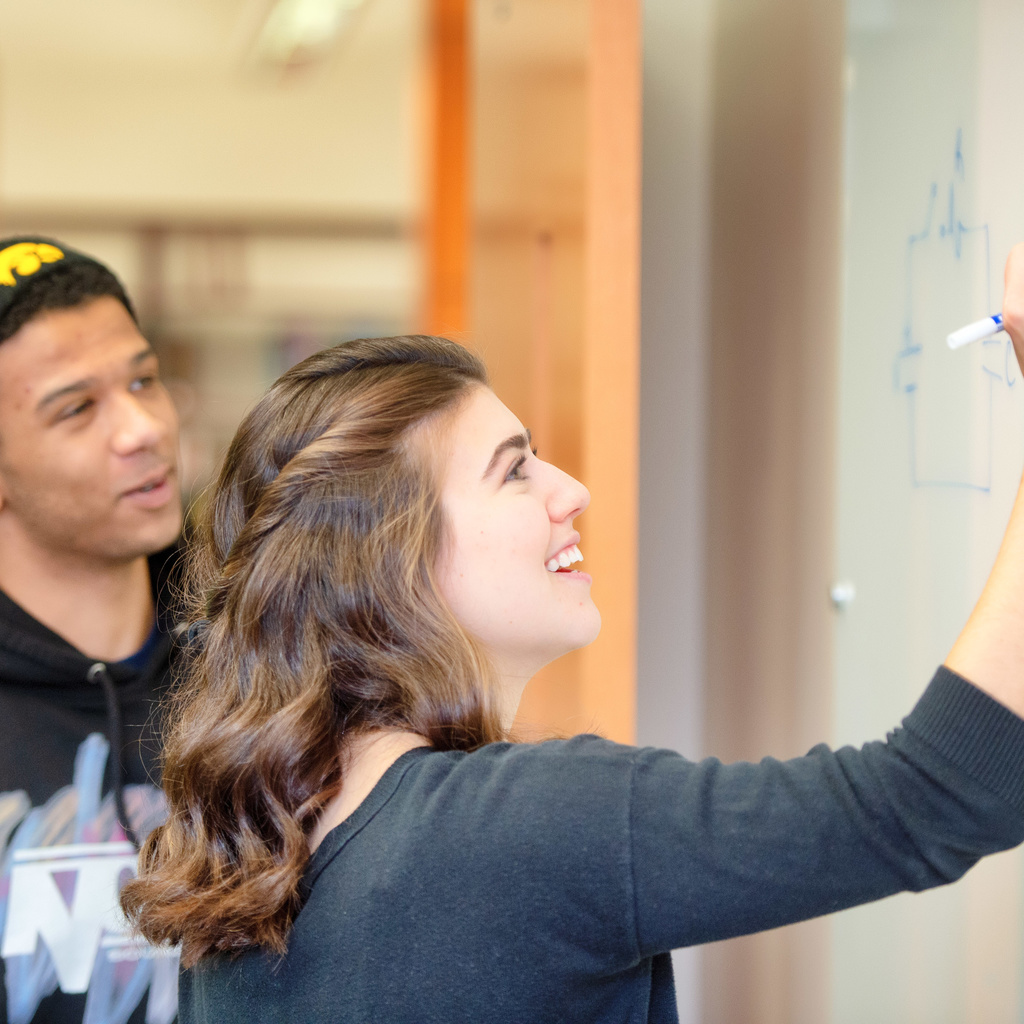
Engineering Student Success Team (eSST)
The eSST team supports engineering students through academic advising, academic support resources, career coaching, student engagement, and student leadership opportunities. As students adjust to a faster-paced and rigorous academic environment in college, the eSST staff uses Learning at Iowa’s language and tools to support student success. Academic advisors and peer tutors participate in professional development on effective learning strategies. Students are offered structured opportunities to evaluate their learning effectiveness and academic performance as part of the Engineering Student Success Workshop series.
MATH:1005, College Algebra
Course coordinator Dr. Cynthia Farthing is an active participant in the Cognitive Support for Student Learning Faculty Learning Community. As part of a course redesign project, she includes metacognitive prompts as journal assignments in ICON. Students reflect on their goals for the course, how they are preparing for exams, and after each midterm exam, they evaluate how their study habits impacted their grade. Trained peer leaders, called “Metacognitive Mentors,” respond individually to each student with encouragement and recommendations for effective learning.
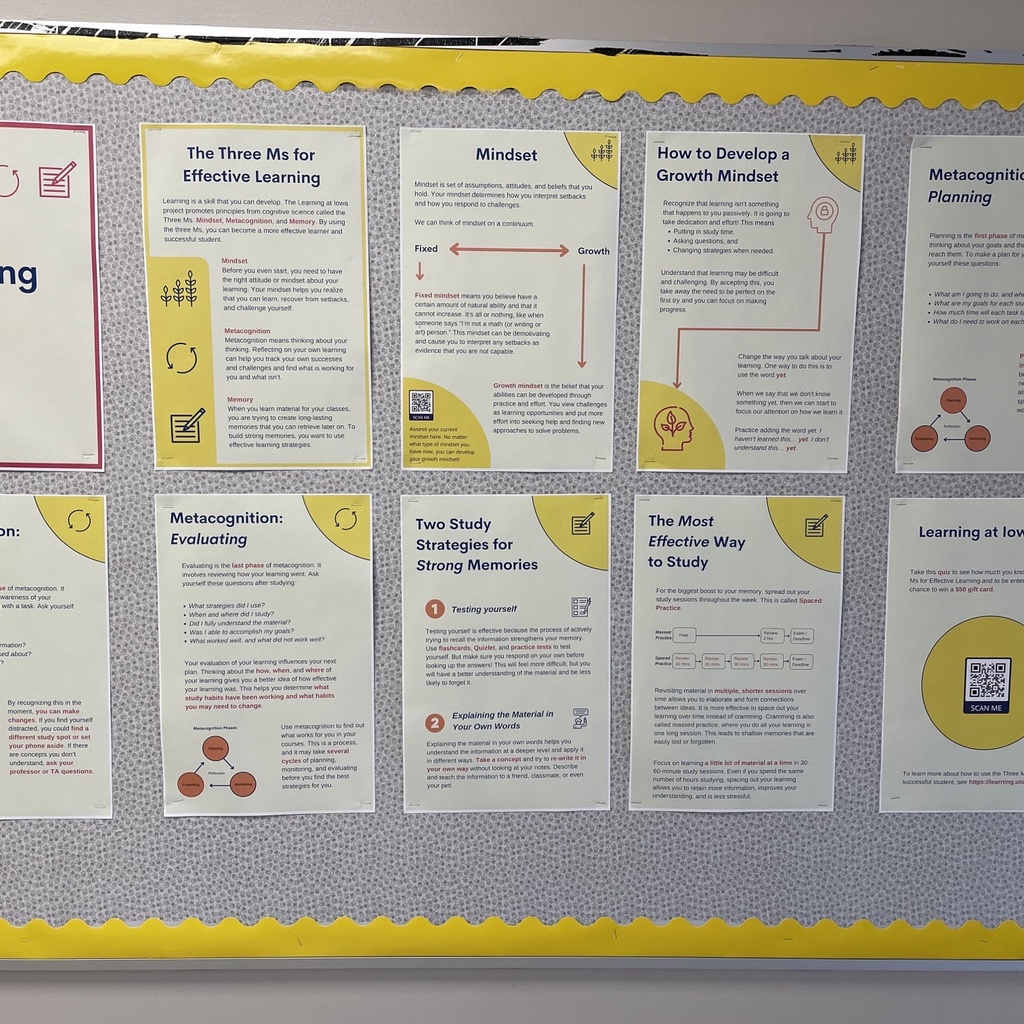
Residence Education, University Housing and Dining
The Residence Education Academic Initiatives team designs and implements educational programming for on-campus residents that enhances and complements other learning experiences on campus. All 150+ resident assistants (RAs) received training on how they can assist their residents by promoting evidence-based effective learning strategies. This spring, resident students were able to view a variety of actionable tips to make the most of their study sessions via attractively designed hall bulletin boards (see photo). Students then used retrieval practice to test their knowledge by taking a short online quiz about the Three Ms.
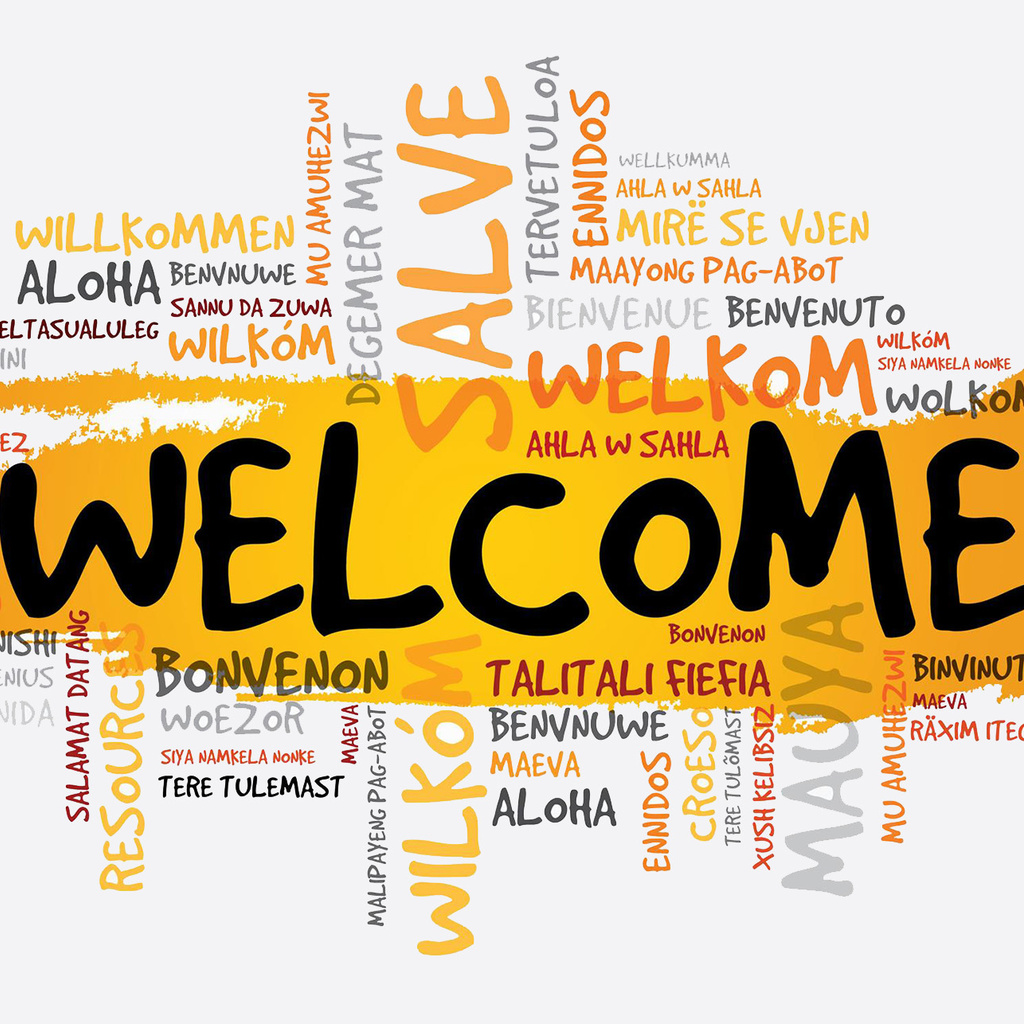
Center for Language and Culture Learning (CLCL)
The Center for Language and Culture Learning (CLCL) supports the teaching, learning, and promotion of world languages and cultures. The Center’s director, Claire Frances, is an active participant in the Cognitive Support for Student Learning Faculty Learning Community. The CLCL has promoted the use of the Three Ms via presentations to faculty instructors, trainings for the peer tutoring staff, and the distribution of informational materials for students about applying these principles when learning a new language.
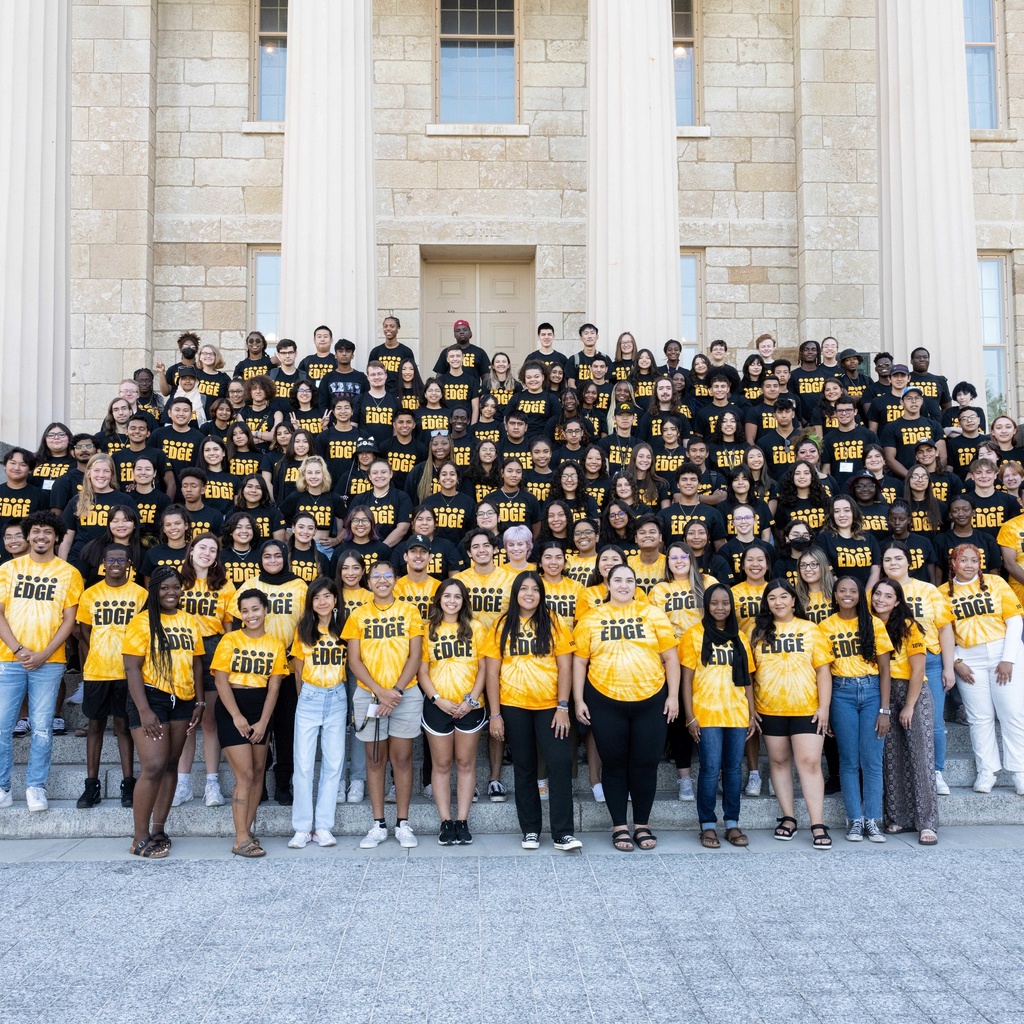
Office of Access and Support
The Office of Access and Support (OAS) in the Division of Access, Opportunity, and Diversity provides campus wide recruitment, retention, and accreditation support while building the skill sets for Hawkeyes to lead our global workforce. OAS academic coaches and peer leaders utilized the Learning at Iowa approach to help students analyze and improve their learning, as highlighted in an article about the University's Strategic Plan.
